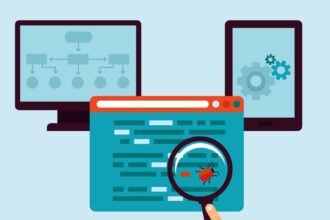 For many organizations out there, big data is the goal. After all, it seems like big data is the only thing people are talking about these days. That’s not without good reason, of course. Big data analytics has proven to be an effective in helping businesses understand customers, increase growth, and make their operations much more efficient.
For many organizations out there, big data is the goal. After all, it seems like big data is the only thing people are talking about these days. That’s not without good reason, of course. Big data analytics has proven to be an effective in helping businesses understand customers, increase growth, and make their operations much more efficient.
 For many organizations out there, big data is the goal. After all, it seems like big data is the only thing people are talking about these days. That’s not without good reason, of course. Big data analytics has proven to be an effective in helping businesses understand customers, increase growth, and make their operations much more efficient. Big data is, without a doubt, extremely helpful in many different circumstances. Problems arise, however, when we start to view big data as the only thing that matters anymore. While it’s true that big data has ended up replacing many of the older, more traditional aspects of companies, big data is far from perfect and definitely not the one and only thing organizations need to focus on.
For many organizations out there, big data is the goal. After all, it seems like big data is the only thing people are talking about these days. That’s not without good reason, of course. Big data analytics has proven to be an effective in helping businesses understand customers, increase growth, and make their operations much more efficient. Big data is, without a doubt, extremely helpful in many different circumstances. Problems arise, however, when we start to view big data as the only thing that matters anymore. While it’s true that big data has ended up replacing many of the older, more traditional aspects of companies, big data is far from perfect and definitely not the one and only thing organizations need to focus on.
Companies may emphasize collecting as much data as possible, but the important thing to remember is that big data doesn’t always show the whole picture, often leaving out important details or failing to cover certain areas.
This problem seems a bit counterintuitive to the whole idea behind big data. Big data is supposed to give companies are clearer picture of what problems and possible solutions they’re facing. There are certainly challenges with big data, but leaving out details surely can’t be one of them, can it? Actually, as useful as big data is, it is possible to have too much data. Think of it like getting flooded with so much information that an organization becomes paralyzed when it comes to making decisions. Many companies have come to rely on big data so much during the decision-making process that they have trouble trying to account for any other information they might be missing.
Big data is all about being able to measure these details, but much of business is still driven by immeasurable items. A company that utilizes big data can tell with painstaking detail what the response rate is for certain online marketing campaigns. What big data can’t do is factor in a company’s values. There are definitely situations where the big data may point toward one direction, but what an organization considers important points in a different direction. Those businesses that feel beholden to big data may end up compromising those values in pursuit of something that may not pan out as expected. Pursuing every big data insight also could threaten a company’s identity, another thing difficult for big data to measure.
While most organizations expect big data to fill out the details of any picture, it’s also important to note that in many situations, big data analytics doesn’t even involve all aspects of data. Information contained within paper files and documents is often not used for analysis purposes, in part because it’s difficult to turn that paper data into digital data. That means companies are only working with a portion of the data they need, sometimes a significant amount.
One of the main concerns with using big data is how mechanical it is. Businesses want to use it to come up with solutions to the problem they’re facing, but what if the solution is based on creativity? For now, big data analytics has plenty of difficulty accounting for creative solutions to business problems, in part because analytics solutions are still the result of coding and big data platforms. The same problem often comes up when organizations are encountering a problem that is difficult to define. Even with all the data in the world, if people can’t put that problem into a form that analytics can tackle, big data will do little good.
This is by no means an argument to get businesses to stop using big data. Quite the contrary, big data is extremely useful for companies to reach new levels of success and growth. But it’s important to not think of big data as the only thing an organization needs to succeed. Data should be used to inform the decision-making process, not hijack it completely. Many businesses are debating over the inclusion of “gut instinct” when it comes to making these important decisions, and many successful business leaders are saying feelings should still play a role. Companies are more informed today than they’ve ever been, so as long as they understand that big data can still miss some things, they’ll have a better handle on all that they can accomplish.









